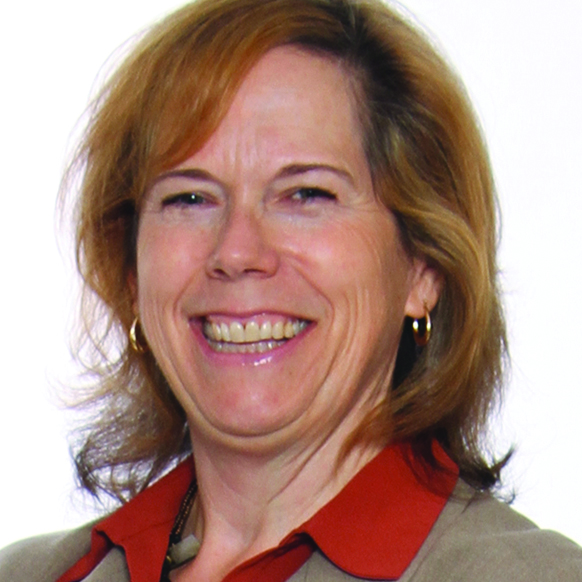More than 400 community development professionals met in Cleveland, Ohio, in mid-June for Policy Summit 2023. Organized by the Cleveland Fed in partnership with eight other Reserve Banks and 17 regional community organizations, the event marked the 16th time Cleveland Fed officials hosted the summit to encourage “kitchen table” policy conversations on economic challenges facing communities across the US.
Engagement was high throughout the two-day event during the in-person sessions and for those attending virtually. Academics, bankers, elected officials, practitioners, and policymakers from 34 states and Washington, DC, brought an electric energy to the summit.
Policy Summit 2023 topics focused on lack of child care, small businesses having trouble accessing capital, and the digital divide, all of which reflect themes that surfaced repeatedly throughout the event.
In addition to keynote speeches, mayors panel, and breakouts with experts, the summit featured a Fed Listens session, events which have been held by the Federal Reserve since 2019. These listening sessions involve key Fed policymakers joining public events to hear directly from practitioners about the economic challenges and opportunities in their communities post-pandemic.
Firsthand insights are vital to understanding today’s economy
Fed policymakers examine a great deal of quantitative data on economic conditions to understand all aspects of the economy. However, due to lags in reporting data, some economic issues are elevated more quickly through observations. The Fed relies on observations provided by multiple sources, including business and community advisory councils, to add insights and nuance to the data. Community perspectives have also been added to the Fed’s Beige Book as a regular feature.

At Policy Summit 2023, Federal Reserve Governor Michelle Bowman and Cleveland Fed President and CEO Loretta J. Mester took notes as audience members shared summaries of their tables’ discussions. The two Fed policymakers asked follow-up questions to clarify their understanding. Governor Bowman shared that the collective results will be published on the Board’s website.
Several themes emerged from the Fed Listens session and discussions throughout Policy Summit 2023.
Employers still struggling to find workers
Employers’ inability to hire enough workers was a key theme. In particular, small businesses less able to compete with larger firms on pay and benefits feel the pinch. Multiple barriers impact workers and employers, including transportation gaps, the benefits cliff, and access to affordable, high-quality child care.
In the absence of policy solutions, some employers are addressing these barriers themselves.
Take Dan Meyer, CEO of Nehemiah Manufacturing. Located in the heart of Cincinnati, Ohio, Nehemiah produces branded products for consumer giant Procter & Gamble. Faced with a growing business and lack of workers, Meyer began more than 10 years ago employing second-chance citizens, or those who reenter society after serving a prison sentence. Many states require job applicants to disclose felony convictions. This requirement presents a huge barrier to securing employment once a person leaves prison.
“We started small, hiring one or two workers,” Meyer explained. “And we partnered with local agencies skilled in supporting this population.” Before long, Nehemiah’s employees included more than 160 second-chance citizens and multiple social workers and attorneys. Meyer and his team learned that having these resources on staff was valuable to help second-chance workers navigate reentry and achieve social and economic stability. That stability contributes to their becoming some of Meyer’s longest-tenured employees.
In a session on early child care and the workforce, panelist Lillia Vergara from Dr. Bronner’s Soap Company shared how her company has been able to retain employees.
“In 2016, we asked our employees, ‘What do you need?’” Their answers included access to child care, among other needs.
The company began awarding an annual stipend to employees for child care. When the pandemic hit, demand for soap skyrocketed. So did employees’ urgent child care and family care needs. The company responded with an increase in both the amount of and coverage for the stipend to include children through middle school.
“[Companies are] already spending that money, whether on training or turnover costs,” Vergara said. “We found investing in our current employees in this way is good for our business and good for our workers.
“People talk,” she added. “Word got out about our benefits, and other people wanted to work here.”

‘Listening is most of what I do’
Another theme expressed by community leaders, Fed researchers, and central bank policymakers is the vital role of listening.
Three mayors noted that engaging directly with residents is a key part of their roles. Mayor Justin Bibb of Cleveland continues to knock on doors well after the election that put him in office. “I thought people knew what was going on in the community,” he stated. He finds these conversations helpful to hear from people about what matters to them and keep them informed.
Ashley Putnam from the Philadelphia Fed, who moderated a discussion on employing second-chance workers, noted that it’s critical to learn from workers what they’re experiencing and what they need. In 2022, Putnam co-led the Fed’s Worker Voices Project involving focus groups with workers without a college degree. They asked participants about their experiences working during the pandemic and their feelings about work going forward.
“Workers want dignity. They want to know their work has value,” she said, echoing comments Dan Meyer from Nehemiah shared about his firm’s approach to hiring second-chance workers.
“I don’t care what someone has done in their past,” Meyer said. “I ask workers about their dreams. Listening is most of what I do.”
Addressing community challenges calls for cross-sector partnering, navigating
Another theme discussed in many of the sessions was the key role of navigators in helping communities thrive.
With the benefits cliff, for instance, a worker earning a lower wage is at risk of losing critical public assistance as they earn even modest wage increases. Workforce agencies and knowledgeable employers can help workers navigate this vexing challenge. Agency employees, many of whom have experienced the benefits cliff themselves, are called navigators.
Cross-sector collaboration is also vital to creating a robust workforce development ecosystem. Speaker Tameshia Bridges Mansfield from Jobs for the Future pointed to the need for workforce policy solutions that focus on underlying barriers like transportation, child care, and housing.
With federal dollars on the table to address workforce challenges, Mansfield noted, “People are itching for action. We have to be bold and willing to change things.”
Tim Bartik, a senior economist with W.E. Upjohn Institute for Employment Research, added, “There’s an opportunity for states to be very creative.”
President Mester closed out Policy Summit 2023 with her “Perseverance and Partnership Produce Progress in Community Development” speech.
“Regions are also realizing that investments to draw a highly skilled workforce can pay off by attracting more employers to the region and making the region more competitive when opportunities arise.”
President Loretta J. Mester
“[I]nvesting in employees can pay off in the long run by creating a more attached and productive workforce,” Mester stated. “Regions are also realizing that investments to draw a highly skilled workforce can pay off by attracting more employers to the region and making the region more competitive when opportunities arise.”

To view select Policy Summit 2023 sessions, including Fed Listens with Governor Michelle Bowman and Cleveland Fed President and CEO Loretta J. Mester, visit the event page.


